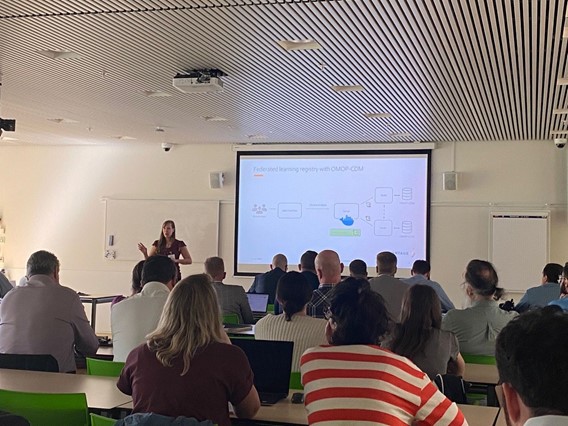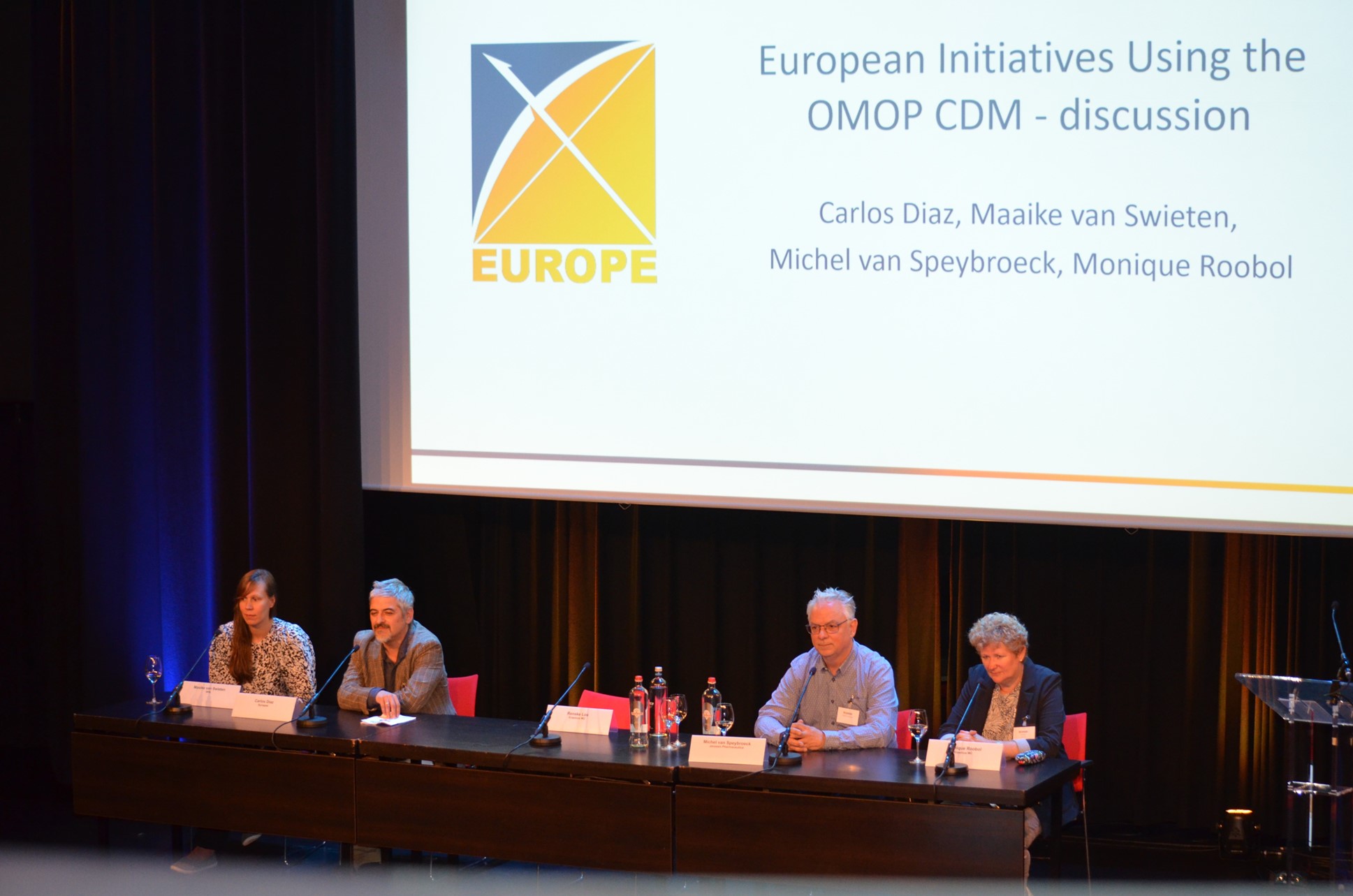EURACAN's Participation at OHDSI Europe Symposium - Advancing Collaborative Cancer Research
The recent OHDSI Europe Symposium “Full Steam Ahead” brought together experts from various corners of the healthcare landscape, with EURACAN taking a notable role in the event. Let’s delve into the key highlights of EURACAN’s engagement in this informative gathering. OHDSI is the Observational Health Data Sciences and Informatics community, an increasingly large group of clinicians, epidemiologists and data scientists working with observational health data from various sources (e.g. claims data, patient record data, registries). The idea is simple: if every data source is coded in the same way, we can conduct the same analyses everywhere and we can carry out studies at-scale.
Day 1: Fostering Collaboration
On the first day of the symposium, the PIONEER, EURACAN, and DIGICORE Cancer Observational Medical Outcomes Partnership (OMOP) networks came together to jointly organized a Cancer Network Master Class. Each of these networks specializes in distinct aspects of cancer research: PIONEER focuses on prostate cancer, EURACAN on rare solid cancers, and DIGICORE on comprehensive cancer care quality. Despite their independent operations, the event underscored the value of sharing experiences for mutual benefit.
During the discussions, participants addressed common challenges faced by the networks. These challenges encompassed data transformation into the OMOP Common Data Model (CDM) format, analysis within the OMOP framework, and establishing a strong network of data partners using the OMOP-CDM. The oncology workshop led by Asieh Golozar and Christian Reich further explored these challenges and highlighted the significance of incorporating detailed cancer information into the Common Data Model. Dr Maaike van Swieten (Netherlands Comprehensive Cancer Organisation; IKNL) represented EURACAN in the discussions. Van Swieten stressed the importance of the OHDSI community for the EURACAN Registry: “By collaborating on data definitions, and analyses, we can tackle these challenges together. It makes our work more effective, more impactful, and more fun”.

Day 2: Broadening Horizons
The second day of the symposium saw a broader exploration of the OMOP-CDM’s implications. EURACAN was prominently featured in the session titled “European Initiatives Using the OMOP-CDM.” Here, initiatives like HONEUR, PIONEER, and OPTIMA came together to discuss their progress in solid cancer, blood cancer, and rare cancers research.

Central to the discussion was the process of integrating cancer patient information into the OMOP-CDM framework. Speakers shared their insights into challenges faced and lessons learned, highlighting the potential of integrated analysis and federated learning in transforming cancer care.
In a symposium that fostered enlightening discussions, the participation of EURACAN reflected its commitment to advancing rare cancer research and care. As the event came to a close, it became clear that the successful discussions sparked by these sessions have laid the foundation for ongoing collaboration and knowledge sharing. This, in turn, will pave the way for further progress, opening new doors for innovation and advancement in cancer research.

Enjoy Reading This Article?
Here are some more articles you might like to read next: